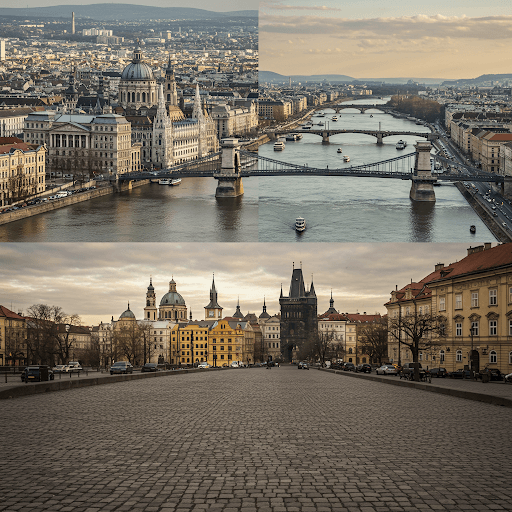Budapest and Prague are two iconic Central European cities that are not only attractive for their historical and cultural heritage but also as prominent university hubs. As a student, it is a legitimate dilemma: should you study in Budapest or Prague? The two cities share many similarities, not only in terms of culture but also in education quality, cost of living, and more.
Naturally, we recommend Budapest, as this is where we live, grew up, and spend our daily lives with friends, family, and acquaintances. Budapest, like similar cities such as Prague, has a truly special charm – we completely understand why choosing between them can be difficult for students.
That’s why we conducted a bit of research, analyzing online discussions on Reddit and Quora, as well as gathering insights from students living in Diáklakás. As much as we love Budapest, it’s only fair to present an objective comparison of the advantages and disadvantages of both cities.
TL;DR: based on our observations, the following can be said about the two cities.
In terms of the cost of living, Budapest is slightly cheaper, although trends in recent years indicate a rise in prices.
Regarding attractions and culture, both cities are on the same level. Prague has an old and romantic medieval city atmosphere, with a culture that resembles Germanic influences, especially in terms of architectural style and the overall vibe of the city.
In contrast, Budapest has a much more diverse and youthful vibe, blending historical and modern culture.
When it comes to entertainment options, Budapest offers a more diverse range of possibilities, such as ruin pubs, bars, and techno clubs. On the other hand, Prague is more dominated by pubs and beer houses. Therefore, in terms of nightlife, both cities excel overall.
Regarding public safety, Budapest is slightly less safe than Prague. According to Numbeo data, Budapest’s Crime Index is 34.06, while Prague’s is 24.5. The lower the score, the better.
In terms of education, both Budapest and Prague have outstanding universities on an international scale. However, several independent university rankings place multiple universities in Prague significantly higher than Budapest’s top universities. Among them, Charles University and the Czech Technical University (ČVUT) stand out.
When considering career opportunities and the state of the economy, Prague offers much more perspective than Budapest. In recent years, Hungary has become unstable in economic and political terms.
Finally, from which city can a student reach more and “cooler” places? This is a matter of preference, as both cities are located in the center of Europe, making most European cities equally accessible from them.
However, there is one important difference: Budapest is much closer to the Balkan countries (and thus the Mediterranean Sea), while Prague is closer to the major cities of Western Europe.
Both cities are fantastic in almost every aspect, so whichever one you choose, you won’t make a bad decision. If you are considering where to start your higher education and have reached the Budapest vs. Prague decision point, it is worth thinking more deeply about the above aspects.
In the meantime, read on for a more detailed comparison of Budapest and Prague in these aspects! 🙂
Cost of Living
The cost of living is one of the most important factors for students, as it can represent a significant expense over the years spent in a given city. There are noticeable differences between Budapest and Prague in terms of rental prices, food expenses, and general consumer prices.
If you are looking for a more affordable option for studying, Budapest may be a better choice, especially considering rental and food costs. Prague is somewhat more expensive, particularly in terms of housing and daily expenses, although transportation and entertainment costs are similar.
Budapest
Budapest is one of the cheapest capitals in the Central and Eastern European region, making living costs manageable even for students. A monthly student budget – including rent, food, transportation, and entertainment – ranges between €500 and €900.
- Rent: €350–€700 per month, depending on whether you are looking for accommodation in the city center or the suburbs. A dormitory or student residence is a cheaper option, ranging between €150 and €350.
- Food: €150–€250 per month. A simple restaurant lunch costs around €8–€12, while a weekly grocery shopping trip can be €40–€60.
- Public Transport: Budapest has an excellent public transport system, and with a student discount, a monthly pass costs only €10.
- Entertainment: a cinema ticket costs €6–€8, a beer in a pub costs €2–€3, while a concert ticket can range between €15 and €40.
Prague
Prague is slightly more expensive than Budapest, especially regarding rental prices. The overall monthly cost of living ranges between €700 and €1200.
- Rent: €500–€900 per month. Rental prices in Prague have risen rapidly in recent years, making centrally located apartments quite expensive. Dormitory accommodation costs between €200 and €400.
- Food: €200–€300 per month. A budget-friendly restaurant meal costs around €7–€10, while a weekly grocery shopping trip can be €50–€80.
- Public Transport: public transportation is also well-organized in Prague, with a student monthly pass costing approximately €12.
- Entertainment: a beer costs on average €1.5–€2.5, a cinema ticket is €5–€7, while a concert or theater ticket can range between €20 and €50.
Attractions, Culture, and Vibe
The atmosphere, cultural life, and attractions of a city play a key role in how comfortable and at home you will feel in a given place. Both Budapest and Prague are rich in historical landmarks, artistic events, and cultural programs, but they offer distinct vibes.
Budapest is livelier, blending modern and historical elements with an active cultural scene, while Prague has a more romantic, traditional, and relaxed atmosphere.
Budapest
Budapest is a mix of history and modernity. The city is famous for its many exciting sights including panoramic views along the Danube, stunning architecture, and vibrant cultural life. The ruin pubs, thermal baths, and annual festivals make it unique.
- Attractions: Parliament, Fisherman’s Bastion, Buda Castle, Gellért Hill, Dohány Street Synagogue
- Culture: Opera House, National Gallery, Ludwig Museum, Museum of Fine Arts
- Vibe: university city, buzzing nightlife, large festivals (e.g., Sziget Festival, Budapest Park concerts), a balance of historical and modern elements
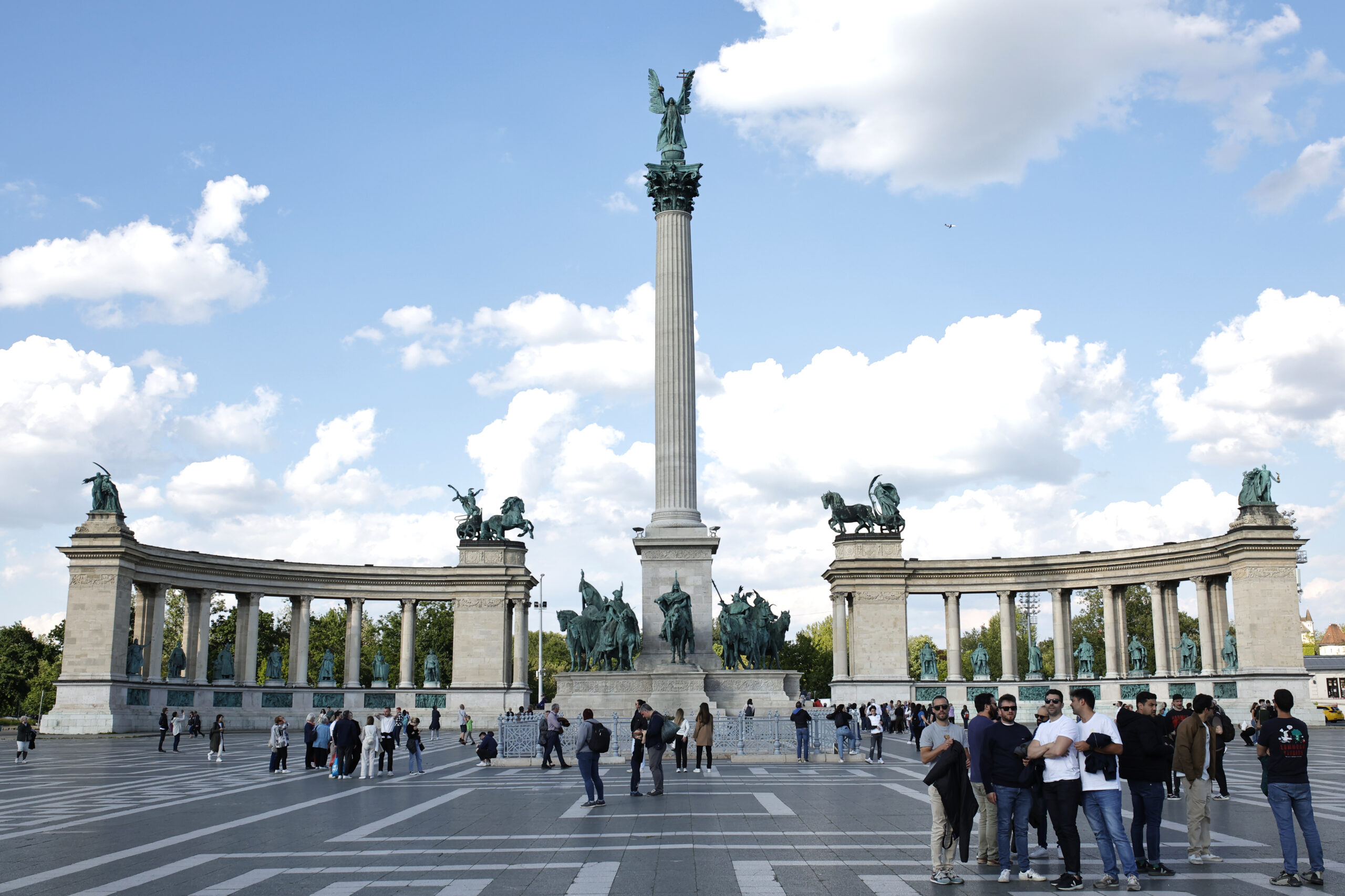
Prague
Prague offers a fairytale-like cityscape with narrow cobblestone streets, medieval buildings, and grand churches. The city’s atmosphere is more romantic and gives the feeling of stepping back in time.
- Attractions: Charles Bridge, Prague Castle, Old Town Square, Church of Our Lady before Týn, Golden Lane
- Culture: Czech National Museum, Prague National Theatre, Franz Kafka Museum
- Vibe: medieval ambiance, a vast number of historic buildings, calmer nightlife, dominated by pubs and beer culture
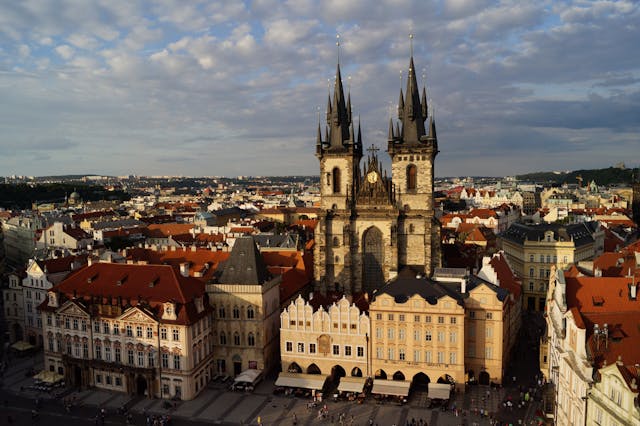
Entertainment Options
We’ve been to Prague and enjoyed its nightlife, and we are 100% sure that you will have just as much fun in both cities. However, there are some subtle differences.
Budapest offers more diverse and international entertainment options. The ruin pubs are an iconic part of the city, not to mention the underground techno parties.
In contrast, Prague is a bit more laid-back, with pubs and beer halls dominating the scene. If you prefer a more relaxed, conversational, beer-drinking atmosphere, Prague’s nightlife might be more appealing to you.
Budapest
Budapest’s nightlife is famous worldwide. The city offers plenty of options for students, whether it’s ruin pubs, techno clubs, bars, or live music venues. Sziget Festival, Budapest Park, A38 Ship, and Akvárium Klub have become some of Europe’s top music and cultural venues.
The 7th district party quarter, Gozsdu Courtyard, and the Erzsébet Square area are some of the most popular meeting spots for students and tourists alike. Additionally, Budapest has many alternative entertainment venues that host underground techno genres and more intimate, niche events.

Prague
Prague is more famous for its beer culture, as the Czech Republic is one of the world’s biggest beer-consuming nations. The Old Town and the Vltava riverside clubs are perfect spots for a night out.
That being said, Prague’s electronic music scene shouldn’t be overlooked. The city has plenty of trendy clubs and jazz bars worth exploring.

Public Safety
From an objective perspective, both Budapest and Prague are considered safe cities. However, Prague has slightly better safety statistics. According to Numbeo, Prague’s Crime Index is 24.05, while Budapest’s is 34.06. The lower the score, the safer it is to live in that city.
Numbeo classifies safety levels as follows:
- Below 20: very low crime
- 20–40: low crime
- 40–60: moderate crime
- 60–80: high crime
- Above 80: very high crime
For comparison, here are the Crime Index scores of some other European cities:
- Vienna: 30.28
- Bratislava: 30.53
- Berlin: 44.64
- Warsaw: 25.4
- London: 55.26
- Brussels: 54.33
Budapest scores higher than Prague mainly due to higher rates of theft and verbal harassment.

Budapest
Budapest is generally a safe city, especially in downtown areas and university districts, where many students and tourists are present.
However, Budapest’s public safety trends have shown some decline in recent years. Pickpocketing is the most common crime, particularly in crowded places like public transport hubs and popular tourist areas, such as Váci Street and Keleti Railway Station.
The party district in the 7th district also sees occasional minor crimes, including pickpocketing, verbal harassment, and street conflicts. However, the most common “danger” in Budapest is actually scams and overcharging rather than physical threats.
There is a strong police presence in high-traffic areas, and the city remains relatively safe even at night, particularly in student-friendly districts. Street lighting is adequate, and many 24/7 establishments offer a safe place to ask for help if needed.
Prague
Prague is considered one of the safest capitals in Europe, with low crime rates. The city center and university areas are safe to navigate both day and night. Pickpocketing is the biggest issue, especially in tourist-heavy areas such as Old Town Square, Charles Bridge, and public transport.
Compared to Budapest, violent crime and street conflicts are rarer in Prague. Nighttime transportation is also well-organized, with a network of night buses and trams providing a safe and reliable alternative to taxis and other transportation options.
Universities and Educational Standards
Both Budapest and Prague are home to several internationally recognized universities. These institutions often have centuries of experience and tradition, ensuring that whichever city you choose, you will receive high-quality education for your money.
However, according to multiple independent university rankings, several Prague universities rank significantly higher than the best universities in Budapest. The two most outstanding universities in Prague are Charles University and the Czech Technical University (ČVUT).
- Charles University is ranked 246th in the QS World University Rankings 2025.
- Czech Technical University (ČVUT) currently holds the 420th position in the global ranking.
In comparison, the best university in Budapest – Eötvös Loránd University (ELTE) – is ranked 564th in the QS rankings.
However, different rankings may show varying results. For instance, in the Times Higher Education (THE) World University Rankings 2025, Semmelweis University in Hungary achieved a much higher ranking (251-300), compared to Charles University (401-500).
Budapest
The most renowned and respected universities in Budapest include:
- Eötvös Loránd University (ELTE): one of Hungary’s largest and most prestigious universities, known for strong humanities, natural sciences, and law programs.
- Corvinus University of Budapest: recognized for top-tier economics and social sciences programs.
- Semmelweis University: one of the best medical universities in Central Europe. Thousands of international students, particularly from Germany, enroll here each year.
- Budapest University of Technology and Economics (BME): offers strong engineering and IT programs.
Many international students study at these institutions. Among them, Semmelweis University stands out, as it has the second-highest number of foreign students in Hungary (after the University of Debrecen).

Prague
The most prestigious universities in Prague include:
- Charles University: one of Europe’s oldest universities, offering a broad spectrum of programs.
- Czech Technical University (ČVUT): one of the leading technical universities in Central Europe.
- University of Economics, Prague (VŠE): a top institution for economics and business studies in the region.
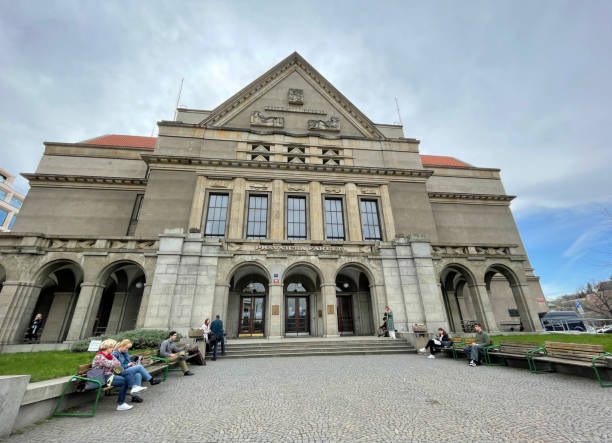
Career Opportunities and Economy
Both cities offer strong career opportunities, but with different advantages. Budapest may be more attractive for entry-level employees due to its lower cost of living, while Prague offers higher salaries and better connections to Western European markets. Your choice depends on your industry and long-term career goals.

Budapest
Budapest is Hungary’s economic center, home to many multinational companies and startups. The city has a strong IT sector, financial services industry, and research & development sector. Many international corporations, such as GE, Morgan Stanley, and Bosch, have offices in Budapest and frequently hire interns and fresh graduates.
Additionally, Budapest has a growing startup ecosystem, with technology companies and innovation hubs continuously developing. The collaboration between universities and businesses is strong, allowing students to gain practical experience during their studies.
Prague
Prague is the financial and business center of the Czech Republic, also home to many international companies, including Amazon, IBM, and Deloitte. The IT and financial sectors are rapidly growing, along with engineering and manufacturing industries. One key advantage of Prague is that it is one of the most competitive job markets in Europe, offering higher salaries than Budapest.
The entrepreneurial culture is strong in the Czech Republic, and Prague’s startup scene is also expanding rapidly. Due to its strategic location in Central Europe, Prague serves as a gateway to major economic hubs, providing more opportunities for international career growth.
Geographically Nearby Countries and Cities
Both Budapest and Prague are centrally located, making it easy to explore neighboring countries and cities within a short travel time. Since both cities are in Central Europe, most major European cities are equally distant from them.
However, there is one key difference:
- Prague is closer to Western Europe.
- Budapest is closer to the Balkans.
Overall, both cities serve as great starting points for exploring Central Europe, depending on which direction you prefer to travel.
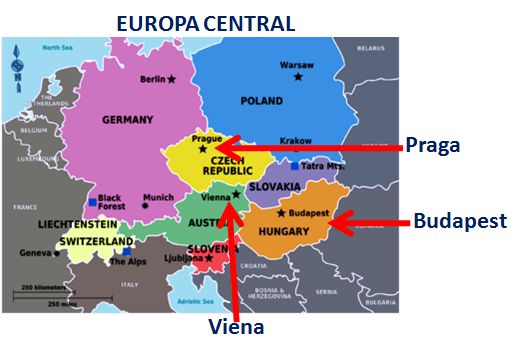
Easily Reachable Destinations from Budapest
- Vienna, Austria – ~2.5 hours by train or car.
- Bratislava, Slovakia – ~2 hours by train or bus.
- Zagreb, Croatia – ~3.5 hours by train.
- Belgrade, Serbia – ~4 hours by train.
- Ljubljana, Slovenia – ~5 hours by bus.
Easily Reachable Destinations from Prague
- Dresden, Germany – ~2 hours by train.
- Vienna, Austria – ~4 hours by train or bus.
- Bratislava, Slovakia – ~4 hours by bus.
- Wrocław, Poland – ~4 hours by train.
- Berlin, Germany – ~4.5 hours by train.
The Decision: Which City Should You Choose?
Choosing between Budapest and Prague largely depends on the lifestyle and university experience you are looking for. Both cities offer great opportunities for studying, entertainment, and career growth, but they have different strengths.
When Should You Choose Budapest?
If you are thinking about studying in Budapest, then pick this city if the following points apply to you.
- If you are looking for a more budget-friendly option, especially in terms of rent and food expenses.
- If you want livelier nightlife and more diverse entertainment options.
- If you are interested in emerging startups and the dynamic tech sector.
- If you want to experience thermal baths and explore the Danube riverside attractions.
- If you are of Hungarian descent and prefer to study in Hungarian or stay connected to Hungarian culture.
- If you are more interested in Balkan culture than Western Europe, allowing easy travel to Balkan countries.
- If having quick access to the Mediterranean Sea is important to you, as it is relatively easy to travel from Hungary to the Mediterranean coast.
When Should You Choose Prague?
If you are thinking about studying in Prague, then pick this city if the following points apply to you.
- If you are willing to pay slightly higher living costs in exchange for higher salaries and international career opportunities.
- If you want to live in a historically rich, medieval-style city, known as one of Europe’s most beautiful capitals.
- If you enjoy beer culture and a more relaxed, café-and-bar-oriented lifestyle.
- If you want to study at a university with stronger international connections and prestige.
- If you are more interested in Western European cities and want quicker access to them during your studies.
Both cities offer fantastic experiences, and you can’t go wrong with either choice. Consider what matters most to you and where you see yourself thriving the most!



